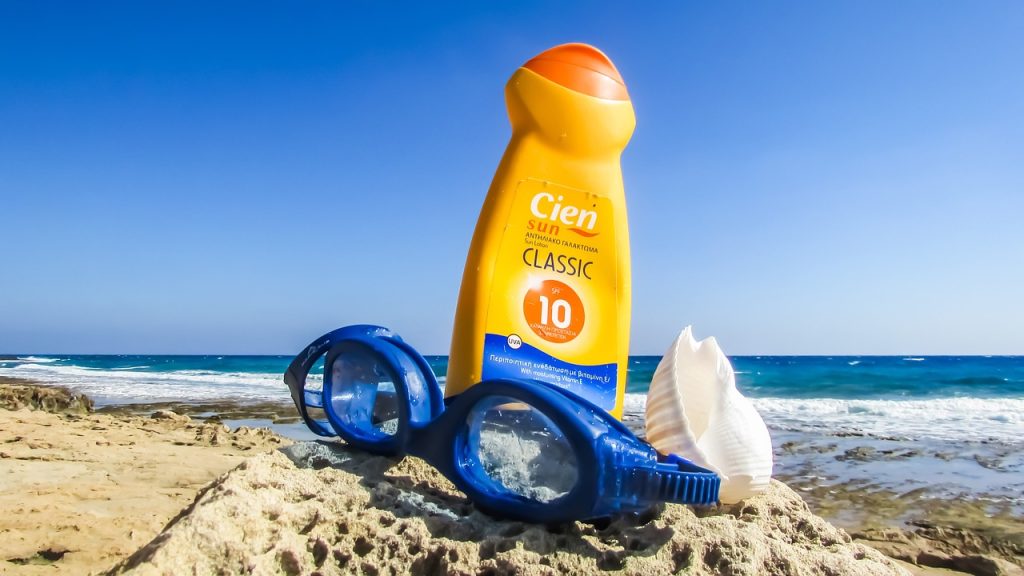So, you’ve finally booked that dream safari trip to Africa, huh? Well, get ready for an adventure of a lifetime! But before you start daydreaming about spotting majestic elephants and roaring lions, there’s something important you need to know – protecting yourself from the scorching African sun. In this article, we’ll give you some practical tips and tricks to keep you safe under the African skies, ensuring a memorable and sunburn-free safari experience. So grab your sunscreen and let’s dive into the world of sun safety on safari!

Understanding the African Sun
The intensity of the African sun
When embarking on a safari in Africa, it is crucial to understand the unique intensity of the African sun. Due to its proximity to the equator and lack of atmospheric pollution, the sun’s rays in Africa can be significantly stronger than in other parts of the world. This means that even on cloudy days, you may still experience high levels of UV radiation.
The dangers of sun exposure
Excessive sun exposure can have serious consequences for your health. Not only can it lead to painful sunburns, but it can also increase your risk of developing skin cancer. Furthermore, prolonged exposure to the sun without proper protection can result in heat exhaustion or heatstroke, which can be life-threatening.
The unique characteristics of the African sun
The African sun poses unique challenges due to factors such as altitude and reflection. At higher altitudes, the sun’s rays can be even stronger, so it’s important to take extra precautions. Additionally, the sun’s rays can reflect off surfaces like sand or water, intensifying their impact on your skin. Understanding and respecting these characteristics is essential for staying safe under the African sun.
Choosing the Right Sunscreen
The importance of sunscreen
Sunscreen is a vital tool in protecting your skin from the harmful effects of the sun. It creates a protective barrier between your skin and the sun’s UV rays, reducing your risk of sunburn and skin damage. When choosing a sunscreen, it is important to consider factors such as sun protection factor (SPF), ingredients, and water resistance.
SPF (Sun Protection Factor) explained
SPF is a measure of how effectively a sunscreen can protect your skin from UVB rays, which are responsible for sunburn. The higher the SPF number, the greater the level of protection. It is recommended to use a sunscreen with an SPF of at least 30, as this provides adequate protection for most people. However, it is important to understand that SPF only indicates protection against UVB rays, not UVA rays, which also contribute to skin damage.
Selecting a sunscreen suitable for the African sun
When choosing a sunscreen for your safari adventure, opt for a broad-spectrum sunscreen that protects against both UVA and UVB rays. Look for products that are specifically formulated for extended sun exposure and are water-resistant. Additionally, consider using a sunscreen with a higher SPF, as the intensity of the African sun may require extra protection.
Reapplication guidelines
To ensure optimal sun protection, it is important to reapply sunscreen regularly throughout the day. As a general rule, reapply every two hours or immediately after swimming or excessive sweating. Pay extra attention to commonly missed areas such as the ears, back of the neck, and tops of the feet. Don’t forget to apply sunscreen even on cloudy days, as UV rays can penetrate through the clouds.
Covering Up for Protection
The benefits of protective clothing
One of the most effective ways to protect yourself from the African sun is to cover up with appropriate clothing. Clothing acts as a physical barrier, reducing your skin’s exposure to UV radiation. Lightweight, breathable fabrics such as cotton and linen are ideal for safari attire as they provide comfort while still offering protection.
Choosing appropriate clothing for safari
When selecting clothing for your safari adventure, opt for long-sleeved shirts, long pants, and skirts to maximize your coverage. Light colors are preferable as they reflect sunlight and help keep you cool. Avoid tight-fitting clothing, as it can restrict airflow and trap heat against your skin. Additionally, consider clothing with built-in UPF (Ultraviolet Protection Factor) for added sun protection.
Protective accessories to consider
In addition to clothing, there are various accessories that can provide extra protection against the sun. Wide-brimmed hats help shield your face, neck, and ears from direct sunlight. Look for hats with a UPF rating for enhanced protection. Sunglasses with UV protection are also essential for safeguarding your eyes from harmful rays and reducing the risk of eye damage and fatigue.
Using hats and sunglasses for additional protection
Hats and sunglasses not only offer physical protection but can also contribute to overall comfort. By minimizing direct sun exposure to your face and eyes, you can reduce the risk of sunburn and eye strain. Remember to choose sunglasses that provide 100% UV protection and fit securely to prevent them from slipping off during your safari adventures.
Practicing Sun-Safe Behavior
Timing your activities wisely
To minimize your exposure to the sun’s strongest rays, plan your activities for the early morning or late afternoon when the sun is less intense. This allows you to enjoy your safari experience while reducing the risk of sunburn and heat-related illnesses. Take advantage of the cooler hours of the day for outdoor explorations, reserving the midday hours for rest and relaxation in shaded areas.
Seeking shade when necessary
When the sun is at its peak, it is important to seek shade whenever possible. Trees, umbrellas, and shelters provide relief from direct sunlight and can significantly reduce your risk of sunburn and heat exhaustion. Take breaks in shaded areas during your safari outings and make use of the natural or man-made shelters available.
Avoiding sunburn through proper precautions
Preventing sunburn should be a top priority when venturing out into the African sun. Alongside using sunscreen, wearing protective clothing, and seeking shade, it is essential to avoid prolonged exposure to the sun. Limit your time in direct sunlight, especially during the hours of 10 am to 4 pm when the sun is strongest.
Understanding the UV Index
The UV Index is a measure of the intensity of UV radiation from the sun. It ranges from 0 to 11+, with higher values indicating a higher risk of harm from unprotected sun exposure. Monitoring the UV Index can help you gauge the level of protection you need. Check the UV Index daily and adjust your sun safety practices accordingly to ensure maximum protection during your safari.

Staying Hydrated in the Sun
The importance of hydration
Maintaining proper hydration is crucial when exposed to the African sun. High temperatures and physical activity can lead to excessive sweating, which increases the risk of dehydration. Staying hydrated not only prevents heat-related illnesses but also helps maintain overall well-being and energy levels.
Drinking water regularly on safari
Make it a habit to drink water regularly throughout your safari adventure. Carry a reusable water bottle and ensure it is filled with clean, safe drinking water. Take small sips frequently, especially during periods of high heat or intense physical activity. Don’t wait until you feel thirsty, as thirst is a sign that your body is already dehydrated.
Other hydrating options to consider
While water is the best choice for hydration, there are other options to consider. Fresh fruits and vegetables with high water content, such as watermelon and cucumber, can provide additional hydration. Additionally, electrolyte-rich beverages like coconut water or sports drinks can help replenish electrolytes lost through sweating.
Protecting Specific Body Parts
Caring for your face in the sun
Properly caring for your face is essential for sun protection, as it is one of the most vulnerable areas to sun damage. Apply sunscreen liberally to your face, paying close attention to the nose, cheeks, and forehead. Consider using a sunscreen specifically formulated for the face, as it is typically less greasy and less likely to clog pores.
Protecting your lips from sun damage
The delicate skin on your lips is highly susceptible to sunburn and damage. Choose a lip balm with SPF and apply it generously throughout the day. Look for lip balms that offer broad-spectrum protection to shield your lips from both UVA and UVB rays. Reapply frequently, especially after eating or drinking.
Shielding your eyes from harmful UV rays
Sunglasses play a crucial role in protecting your eyes from the sun’s harmful UV rays. Look for sunglasses that offer 100% UV protection and have a wraparound design to block rays from entering the sides. Consider polarized lenses to reduce glare and enhance clarity. Protecting your eyes not only prevents discomfort but also reduces the risk of long-term damage.
Taking care of your hands and feet
While it is easy to focus on protecting larger areas of the body, it’s important not to overlook your hands and feet. Apply sunscreen to the back of your hands and the tops of your feet, as they are often exposed to the sun. Consider wearing lightweight gloves and closed-toe shoes to minimize sun exposure and prevent sunburn or heat-related discomfort.

Managing Sunburn and Heat-related Illnesses
Recognizing the symptoms of sunburn
Sunburn is a common consequence of excessive sun exposure and can range from mild redness to painful blisters. Symptoms may include red, swollen skin that is hot to the touch, as well as a sensation of heat or itching. If you experience these symptoms, it is important to take immediate action to prevent further damage and promote healing.
Treating sunburn on safari
If you find yourself with a sunburn while on safari, take steps to alleviate discomfort and promote healing. Move to a shaded area to avoid further sun exposure, and gently cool the affected area with a cold compress or a cool shower. Apply aloe vera or a soothing after-sun lotion to moisturize the skin and provide relief. Stay hydrated to support the healing process and consider taking over-the-counter pain relievers if necessary.
Preventing and managing heat exhaustion
Heat exhaustion is a heat-related illness that often occurs due to prolonged exposure to high temperatures and inadequate hydration. Symptoms may include heavy sweating, weakness, dizziness, nausea, and headache. If you or someone in your group experiences these symptoms, move to a cool, shaded area, loosen clothing, and drink plenty of fluids. Rest and rehydrate until symptoms subside.
Understanding heatstroke and its dangers
Heatstroke is a severe, life-threatening heat-related emergency that requires immediate medical attention. It is characterized by a high body temperature, altered mental state, rapid heartbeat, and possible loss of consciousness. If you suspect heatstroke, call for medical help immediately and take measures to cool the person down, such as applying cold compresses and moving them to a shaded area.
Considering Medications and Skincare Products
The effects of certain medications on sun sensitivity
It’s important to be aware that certain medications can increase your sensitivity to the sun. Common examples include some types of antibiotics, acne medications, and nonsteroidal anti-inflammatory drugs (NSAIDs). If you are taking any medications, consult with your healthcare professional to understand their potential effects and take appropriate precautions.
Consulting your healthcare professional
When planning your safari adventure, it is advisable to consult with your healthcare professional. They can provide personalized advice based on your medical history, any existing health conditions, and the medications you are taking. They may recommend adjustments to your medication schedule, suggest additional precautions, or provide specific guidance tailored to your needs.
Choosing sun-safe skincare products
In addition to sunscreen, choosing sun-safe skincare products is essential for protecting your skin from the African sun. Look for moisturizers, lip balms, and other skincare products that contain SPF. This provides an extra layer of protection throughout the day, especially in areas that may require regular reapplication, such as your lips and hands.
Adapting to the African Sun as a Traveler
Allowing your body time to acclimate
When traveling to a region with a drastically different climate, it’s important to allow your body time to acclimate to the new conditions. This includes adjusting to the increased intensity of the African sun. Take it slow during the initial days of your safari, gradually increasing your outdoor activities to give your body time to adjust and minimize the risk of sunburn or heat-related illnesses.
Understanding your personal sun tolerance
Each individual has a different level of sun tolerance. Factors such as skin type, previous sun exposure, and overall health play a role in determining how much sun exposure your body can handle. Understanding your personal limits can help you make informed decisions about sun protection measures and ensure that you take appropriate precautions to keep yourself safe in the African sun.
Being mindful of others in sun safety practices
While prioritizing your own sun safety is crucial, it is important to be mindful of others and promote a sun-safe environment. Encourage your travel companions to take necessary precautions, such as wearing sunscreen and covering up, to protect themselves from the African sun. By setting a good example and raising awareness, you can help create a culture of sun safety among your fellow travelers.
Educating and Protecting Children from the Sun
Teaching children about sun safety
Children are particularly susceptible to the harmful effects of the sun due to their delicate skin. It is essential to educate them about sun safety from an early age. Teach them the importance of wearing sunscreen, protective clothing, and hats. Encourage them to seek shade and drink plenty of water. By instilling these habits, you can help protect their skin and establish lifelong sun-safe practices.
Ensuring sun protection for kids on safari
When traveling with children on a safari, it is vital to prioritize their sun protection. Apply sunscreen to their exposed skin regularly, paying close attention to sensitive areas such as the face and shoulders. Dress them in lightweight, protective clothing and ensure they wear hats and sunglasses. Be vigilant about seeking shade and keeping them hydrated throughout the day.
The importance of setting a good example
Children often learn by observing and emulating the behavior of adults around them. Therefore, it is crucial to set a good example by practicing sun-safe behaviors yourself. Show your children that you prioritize sun protection by consistently wearing sunscreen, covering up, and seeking shade when necessary. By leading by example, you can instill in them the importance of protecting themselves from the African sun.
In conclusion, understanding and respecting the African sun is paramount for a safe and enjoyable safari experience. By choosing the right sunscreen, covering up with appropriate clothing, practicing sun-safe behavior, staying hydrated, and protecting specific body parts, you can minimize the risks associated with excessive sun exposure. Additionally, considering medications and skincare products, adapting to the African sun as a traveler, and educating and protecting children from the sun are all crucial aspects of maintaining sun safety on safari. With these comprehensive strategies in place, you can fully enjoy the beauty and wildlife of Africa while keeping yourself and your loved ones protected from the intense African sun.












